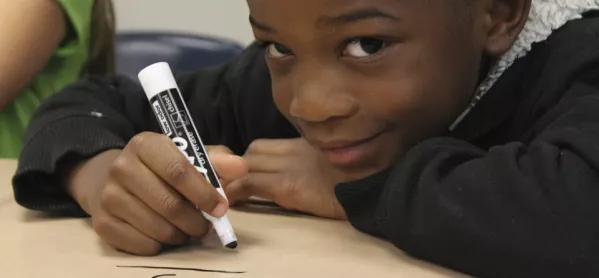Six out of 10 teachers believe that using the maths mastery teaching approach will raise pupils’ engagement, research suggests.
And half say that they have seen attainment levels rise since they adopted the method.
A Tes survey of 1,100 teachers also reveals that more than 80 per cent feel confident in their ability to teach since adopting the method.
The government is investing £41 million in the mastery method of maths teaching in primary schools. This approach involves all pupils working on the same lesson content at the same time. The class does not move on to the next part of the curriculum until all members have grasped the concept being studied. The aim is for all children to believe that if they work hard enough, they can succeed at maths.
‘Deeper learning’
Helen Drury, executive director of the Mathematics Mastery professional development programme, believes that the approach provides a counterbalance to the high-stakes testing culture of English education.
“The messages around mastery are about a much deeper learning than that,” she said. “And that’s what teachers really went into teaching for.
“Taking more time in the first place, so students understand a concept, and then building on that - it just works.”
But Sue Pope, of the Association of Teachers of Mathematics, argued that breaking down the curriculum in this way can prove counterproductive. “Atomising the curriculum into tiny steps, and you can’t move on until you’ve mastered one step? Maths doesn’t always work like that,” she said. “It can take a long time before the penny drops and things start to fit together.”
East Asian approach
The mastery method is used in Shanghai and Singapore, both of which regularly achieve high placings in the Programme for International Student Assessment survey of different countries’ education systems.
But Marina Branco, maths lead at Primrose Hill Primary in North London, emphasised the importance of adapting the East Asian approach to suit her own pupils’ needs.
“In places like Singapore, primary maths teachers only teach maths,” she said. “They have a lot more time to analyse what works and doesn’t work. That’s the thing that’s a challenge for us in the UK: we don’t have much time to reflect on it.”
Maths education resources to help schools use the mastery approach can be found on the Tes maths mastery hub.
This is an edited article from the 14 July edition of Tes. Subscribers can read the full article here. To subscribe, click here. To download the digital edition, Android users can click here and iOS users can click here. This week’s Tes magazine is available in all good newsagents
Want to keep up with the latest education news and opinion? Follow Tes on Twitter and like Tes on Facebook




